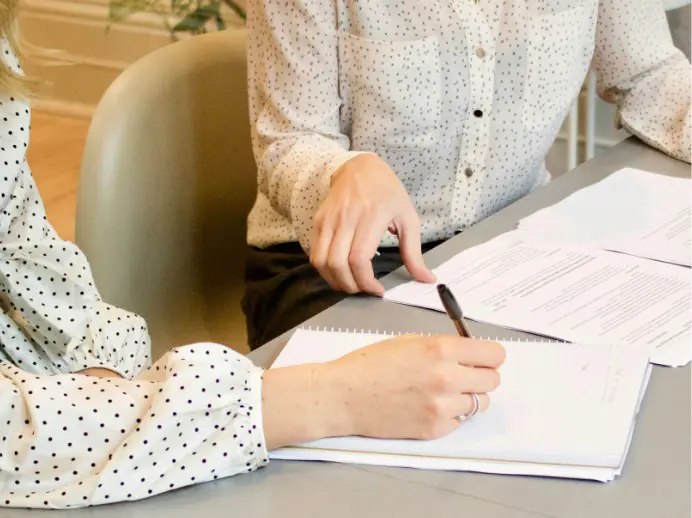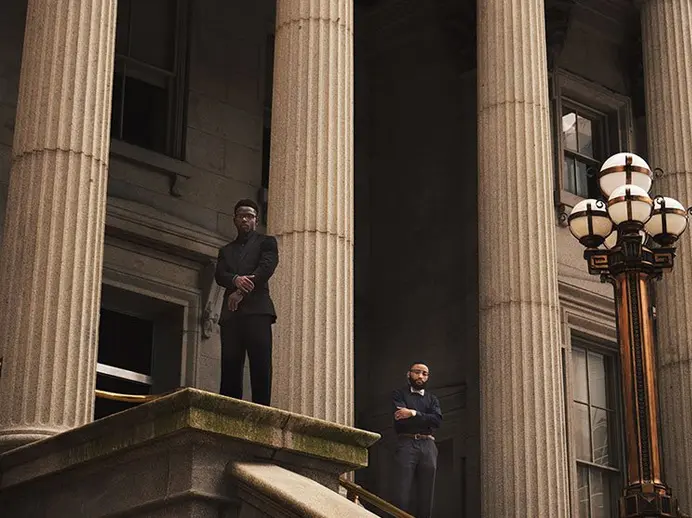14 May, 2019
Property Law, Business Law, Videos
Buying A Business

Before undertaking Buying A Business we take a look at the complicated transactions and how we can help.
In this video, Property Law Partner and Accredited Specialist (Property Law) Simon Bennett gives us insight into the complexities of Buying A Business.
Contact our Business Lawyers Gold Coast team for more information here Property Law Enquiries.
Transcript
Hi there, I'm Simon Bennett, Senior Partner of OMB Solicitors, and I'm going to be talking to you today about buying a business. The importance of buying a business is that it's a complicated transaction, not necessarily governed by the purchase price or the size of the business you're buying, more about the type of business and what's involved in that transaction.
So looking at buying a business, if you are, the first thing you should be thinking about is conducting your own due diligence on the business you're looking to buy. So, that means looking at the financial sustainability, usually with an accountant or a financial advisor, and this is key.
Then making your own inquiries about the type of business, the customers, the sustainability. I'd recommend looking at both the risks to that business and the possible benefits of that business. Once you've bought it, it's yours.
So you need to understand what might go wrong, and I would also recommend that you look at preparing a business plan for how you're going to operate that business once the purchase goes through. There's quite a bit of work to be done up front buy you in checking out the business, and as I said, taking those financials, if you do get them early, to a financial advisor or an accountant to get some financial advice.
Once you get through that stage, it's really important that you speak to your lawyer about the transaction as a whole. But particularly, the first thing I like to think about is what entity are we going to buy the business in? It's really unusual that you would go about buying a business in your individual name.
It's most common that you would purchase a business through a company or a combination of a company and a trust of some description, be a unit trust or discretionary trust. Now, I think it's essential that you make these decisions on advice from both your accountant and your lawyer, and they should be working in conjunction.
The reason for that is accountants tend to look at a certain aspect of the transaction, and lawyers will tend to look at another aspect. But in conjunction, it's really important that they communicate to work out the best method and the best entity for you to use when buying a business.
So let's say we've got the due diligence done and you've decided you want to go ahead with this purchase and you've set up the entity, it's now time to go to contract, and unlike buying a very simple residential property, the contract really should be prepared by a qualified and experienced lawyer.
There's quite often a number of detailed special conditions that are going to need to be added to contracts of sale for the purchase and sale of a business, and these are fundamental to protecting you as a buyer in the process from contract to settlement.
We're going to look at things like making a contract subject to finance, verification of the final books and records that they give you through your accountant. It may include copyright or IP material that has to be transferred, it may include a transfer of licences.
Most importantly and regularly, it involves the transfer of a lease or an assignment of a lease or a grant of a new lease. Now, if the premises where the business is situated is key to the business, we have to make the contract subject to you gaining tenancy or tenure of that premises, and this involves an assignment of the existing lease or negotiating terms of a new lease.
There's quite a bit involved legally around checking out the terms of that tenancy and making sure that the lease is satisfactory, knowing the rental increases, making sure the uses are appropriate, etc. So, drafting clauses around all of those things are really important.
Another issue which is really important with businesses is staff. The contract needs to provide details about what's going to happen with staff. Are you, as the purchaser, going to take on staff? Are you going to select certain staff? Are there certain key staff that you have to have? And if you don't get those staff, then the sale or the purchase isn't to go through.
So, good communication around those elements and conditions is really important, and drafting those clauses appropriate to what you need is similarly really important.
Once we get to that stage where a contract has been finalised, the parties agree and it's signed, it's really on to the lawyer then to start conducting appropriate searches, and depending on the type of business, the lawyer and in conjunction with the accountant and the buyer will determine what searches they think are appropriate and make those checks to make sure really that when you get to settlement, that you are buying the assets and the benefits of the business that you think you're getting without the liabilities.
We don't want to be taking over liabilities of the business that you don't want. Once we get through those searches, we get to the next stage, which is settlement, and at settlement, we obviously purchase the business, we hand over the money and we gain title to either chattels, assets, the business, goodwill, licences, tenure of the property, etc, and that's a really important stage.
Obviously, but it doesn't stop there, quite often after settlement, there's a number of things that your lawyer will still attend to, it could be finalising the registration of, say, a transfer of the business name, lodging forms with relevant departments, etc.
Then on completion of this, hopefully, we've got you in a position where you've got the business of your dreams and you can make a success of it, and it's all that you hoped it would have been.
Our Services
Property
Buying, selling or leasing? OMB Solicitors can help you today with all your property law needs.
All Property Services
Business Law
No matter what your business law issue is, OMB Solicitors have a wealth of experience across an array of commercial law practice areas.
All Business Law Services
Wills & Estates
Is your estate plan safe from litigation? Is your will up to date? Who will make decisions for you if you can’t?
All Wills & Estates Services
Family Law
Separated or contemplating separation? Considering a property settlement? OMB Solicitors can help you today with all your family law matters.
All Family Law Services
Body Corporate
Need body corporate advice? Look no further! At OMB Solicitors we are experts in all matters relating to strata and bodies corporate.
All Body Corporate Services
Litigation
OMB Solicitors have an expert team of litigation lawyers to assist in not only litigation, but also exploring other ways of resolving disputes.
All Litigation Services
Insurance
OMB Solicitors’ experienced insurance lawyers are on hand to assist with your insurance law matter.
All Insurance Services
